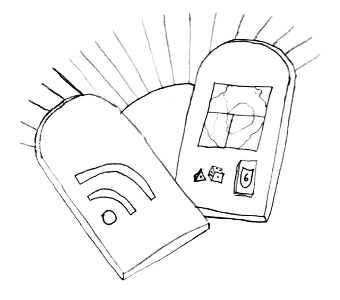Science as a totem

There was once a time, not so long ago, where scientists, engineers, and other intellectual types were considered social outcasts. The classic Revenge of the Nerds is, if not an accurate reflection of college life, at least an accurate reflection of the kinds of stereotypes popular in the 80s. Words like nerd and geek are notoriously difficult to translate into other languages, because other countries don't necessarily associate studiousness with unpopularity except as an import from English-language culture.
Blessedly, the tides have turned. There was, in a sense, a revenge of the nerds: the pervasiveness of computers, not just in industry but in everyday life, brought technology from an embarrassing hobby to a mainstream fashion accessory. Beyond that, the internet and its ability to connect large groups of geographically disparate but idologically proximate people has meant that many formerly-fringe groups can now have a big influence on culture, especially on their virtual home turf.
The final turning point has been science going from something appreciated by intellectuals as a system of discovery to something appreciated by everyone as a way to signal nerd-affiliation. Once upon a time, when you figured out the relationship between water level and volume you would yell "Eureka!" These days, it's more like you successfully plug an iPhone into a sound system and yell "Science!". Of course, saying the word science has as much to do with doing science as wearing yoga pants does with doing yoga. It's really the trappings of science, not its substance, that forms the basis for the new nerd culture.
However, the trappings of science offer no protection against quacks, frauds and fakers. Throughout history there have been no end of people willing to sell spurious theories or products that hang off the magic words of science. When someone comes to you and says that you can turn lead into gold, that fire is a substance, or that life is caused by magic life energy, they're going to come dressed as a scientist and using words from the scientist dictionary. It's only the methods of science; careful observation, experimentation and analysis; that can tell the difference between real and fake science.
So is superficial scientific culture a bad thing? In some ways, yes, but I believe that the positives outweigh the negatives. As I argued in Shallow culture, having a shallow version of deep culture can actually be a good thing it provides an accessible entry point, and makes your culture more familiar and less threatening. When people hold up science as a totem, as an object of worship or identity, they might not be appreciating genuine science, but they are at least appreciating something.
I'd much rather live in a world where people have positive stereotypes of nerdiness than negative ones, and would gladly accept the use of science as a magic word if that stops it from being a dirty word.